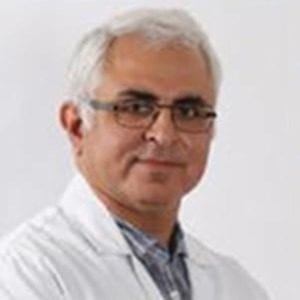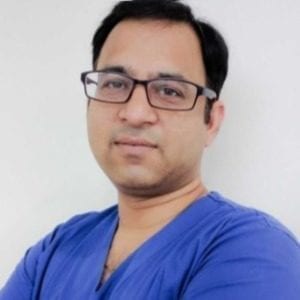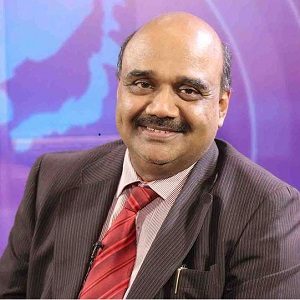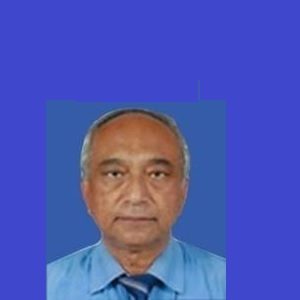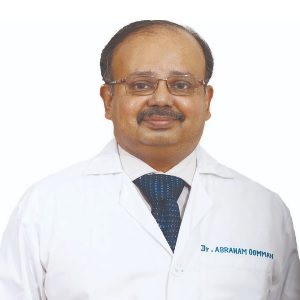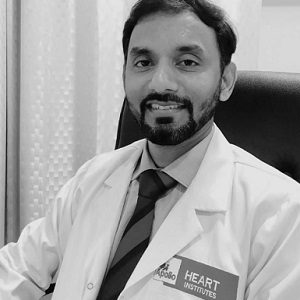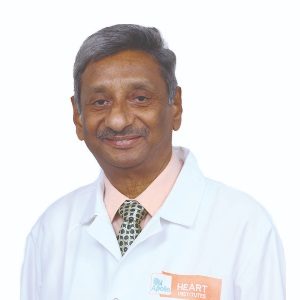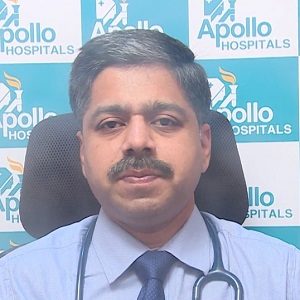Best Doctors in India for Thrombolysis Treatment
- Cardiologist, Gurugram, India
- Over 20 years’ experience
Profile Highlights:
- Dr. Hemant Madan is an experienced and accomplished cardiologist, with a professional experience of around 20 years.
- His expertise includes all aspects of cardiology, including pediatric cardiology, complex coronary interventions, device implantation, all kinds of rhythm disorders, percutaneous treatment of valve stenosis, and peripheral interventions.
- Dr. Madan pursued his Fellowship at the Royal College of Physicians from Edinburgh in UK.
- Cardiac Surgeon, Gurugram, India
- Over 15 years’ experience
Profile Highlights:
- Dr. Rachit Saxena is an experienced cardiac surgeon, who is known for his extreme dedication to his profession, and for providing absolute patient satisfaction.
- Supported by an efficient cardiac surgical team, Dr. Saxena is known for successfully managing the most complex of cardiac surgical problems.
- Dr. Rachit Saxena is known especially known for the capability to perform cardiac surgery with minimal blood requirement and ensure early mobilization and return to work.
- Cardiothoracic Surgeon, Chennai, India
- Over 25 years’ experience
Profile Highlights:
- Dr. T Sundar is one of the best cardiothoracic surgeons in India.
- He is having extensive exposure to critical heart diseases and he has operated on them successfully.
- Dr. T Sundar is a Senior Consultant at Apollo Hospitals since 2003.
- He has been associated with international standards of surgery and diagnosis since his education period.
- Cardiothoracic and Vascular Surgeon, New Delhi, India
- Over 36 years’ experience
Profile Highlights:
- Dr. N Sastri is a renowned cardiothoracic surgeon in India with extensive experience in critical heart surgeries.
- He has nearly 36 years of experience and is a senior consultant- Cardiothoracic & Vascular Surgery with Indraprastha Apollo Hospitals, New Delhi.
- Dr. Sastri specializes in the diagnosis and treatment of vascular disorders using advanced techniques. He has expertise in Total Anomalous Pulmonary Venous Connection Repair, Arterial and Ventricle Defects Surgery, Cardiac Resynchronization Therapy, Balloon Valvuloplasty, CABG LV restoration, PDA Device Closure, PPI, Valve Replacement, and Atrial Fibrillation Surgery.
- Over the years’ Dr. Sastri had treated patients across various countries. In addition to the adult and neonatal cardiac surgeries, he is involved in research and put out many research papers in different medical journals.
- Interventional Cardiologist, New Delhi, India
- Over 47 years experience
Profile Highlights:
- Dr. Prashanta Kumar Ghosh is a senior cardiologist at Indraprastha Apollo Hospital in New Delhi with experience of nearly 47 years in the field.
- Dr. Ghosh has expertise in testing and monitoring cardiac problems. The procedures mainly include minimally invasive cardiac surgery, implantations, device closure for congenital heart diseases, cardiac catheterization, Carotid Angioplasty, Stenting, etc. Half of his experience came from practicing non-invasive cardiology.
- He has so far performed nearly 3 lakh Echos as well as thousands of Doppler and Trans Esophageal Echos in his professional journey.
- Dr. Ghosh has participated in many studies and published papers in various conferences and journals. He also delivers lectures to the students of many institutions across India and abroad.
- Cardiologist, Chennai, India
- Over 31 years’ experience
Profile Highlights:
- Dr. Abraham Oomman is one of the best Cardiologists in Chennai, having an experience of 31 years in this field.
- Dr. Oomman offers consultation and also performs cardiac procedures. He specializes in Preventive Cardiology, Interventional Cardiology, Rheumatic Heart Disease, and Lipidology.
- Patients also visit him for ASD and VSD Surgery, Dextro-Transposition of the Great Arteries (DTGA), Minimally Invasive Cardiac Surgery, and Vascular Surgery.
- Cardiologist, Chennai, India
- Over 22 years’ experience
Profile Highlights:
- Dr. Refai is a world-renowned cardiologist who practices at Apollo Hospital in Greams Road, Chennai.
- Dr. Refai completed advanced training in the United Kingdom after finishing his medical degrees in India.
- He specializes in Angioplasty (Stent implantation), Implantable Cardioverter-Defibrillators (ICDS), Transradial Rotablation, Chronic Total Occlusion Angiography, Pacemaker, Cardiac Invasive Procedures, Bypass Surgery, and other cardiovascular procedures.
- He was involved in many TAVI-related studies at King’s College Hospital in London, and a heart failure pilot trial at The Essex.
- Interventional Cardiologist, Chennai, India
- Over 38 years’ experience
Profile Highlights:
- Dr. I Sathyamurthy is a veteran Cardiologist and has an experience of more than 38 years in Interventional Cardiology.
- Dr. Immaneni Sathyamurthy is a distinguished personality who bagged Padma Shri, the fourth-highest Indian civilian award. In addition to it, he was conferred many awards for his contribution to the medical sciences.
- He has over 250 publications to his credit, some of these are used as textbooks in medical courses.
- Interventional Cardiologist, Chennai, India
- Over 25 years’ experience
Profile Highlights:
- Dr. Karthigesan A M is a renowned Interventional Cardiologist with more than two decades of experience.
- He completed advanced training in cardiac arrhythmia in the USA to serve his patients in a better way.
- Dr. A M Karthigesan received several awards from prestigious associations for his contribution to the field.
- Dr. Karthigesan authored several research papers and articles in premier periodicals and presented papers at national conferences.
- Interventional Cardiologist, Chennai, India
- Over 32 years’ experience
Profile Highlights:
- Dr. Asha Mahilmaran is a seasoned Interventional Cardiologist in Chennai, with more than three decades of expertise in the sector.
- She excelled in academics and was awarded a gold medal in medicine and cardiology.
- Dr. Mahilmaran offers Ventricular Septal Defect Surgery, Cardioversion, Carotid Artery Disease, Chest Pain Treatment, Cardiac Ablation, and Dextro-Transposition of the Great Arteries (DTGA), etc.
- Over the years, she has performed over 15,000 preventive heart checkups.
Best Hospitals in India for Thrombolysis Treatment
Thrombolysis
Thrombolytic therapy commonly known as thrombolysis, is a treatment for dissolving dangerous clots in the blood vessels and for improving blood flow. It can also prevent damage to your tissues and organs.
This procedure is often used as an emergency treatment for dissolving blood clots that form in arteries that feed the heart and brain, which leads to heart attacks and ischemic strokes.
Purpose
When blood clots form in a blood vessel, it severely reduces or even cuts off blood flow to the parts of your body that are served by that blood vessel. This event can lead to serious damage to those particular parts of the body. If the clot forms in an artery supplying blood to your heart, for example, it can lead you to a heart attack. Similarly, a clot cutting off blood to your brain might lead to a stroke.
Thrombolysis is a treatment meant for dissolving blood clots which can cause serious and even life-threatening damage unless they are eliminated from the system. According to research, when this treatment is used for treating stroke, thrombolysis can help to prevent or reverse paralysis as well as any such problems that might result otherwise.
In the case of a heart attack, thrombolysis is an alternative to stenting, a procedure which involves inserting a spring-like device into a blocked blood vessel. Stenting is generally the preferred treatment, as it both removes the clot as well as opens the blood vessel, which may have internal cholesterol deposits. Though thrombolysis removes only the clot, it has an advantage and it is that it can be administered in hospitals with fewer resources.
Thrombolysis is also used for dissolving blood clots forming in catheters or tubes put into people’s bodies for medical treatments, such as dialysis or chemotherapy.
Preparation
Thrombolysis is usually an emergency treatment; therefore, you may not always have time to prepare for it. If you are diagnosed with a condition that is treatable with thrombolysis, you will be transferred to an intensive care unit so that your heart and lung functions can be closely monitored.
If you will be undergoing catheter-directed thrombolysis, you might be asked to fast.
Procedure
Clot-busting agents are generally given in two ways: through a peripheral IV or through a thin tube termed as a catheter, which is navigated to the site of the clot.
First, the clot-busting drug will be administered. This is usually performed in an ICU while your healthcare team monitors your heart and lung functions. The drug circulates within your bloodstream until it reaches the clot. In most cases, the blood clot should dissolve within a day or two. The procedure is monitored closely by your healthcare team using special X-rays and ultrasound scans. These images can also help to determine if the vein wall is damaged or narrowed, making it prone to more clots in the future.
After the procedure
In most cases, the treatment should reverse or alleviate the symptoms. However, the treatment is not always a success, and it might not dissolve the blood clot. This might be the case if the initiation of the treatment was delayed. At other times, even if the clot has dissolved, the affected tissues can get damaged permanently, due to a prolonged restriction of the blood flow. In such cases, further treatment can be required for addressing the causes of the blood clot, as well as repairing any damaged tissues and organs.
Risks
Although thrombolysis can usually improve blood flow safely and effectively as well as relieve or eliminate any symptoms in most patients without the need for any more invasive surgery, it cannot be recommended for every person. It is not suitable for patients who regularly use blood-thinning medication, herbs or dietary supplements or for people with certain conditions associated with an increased risk of bleeding. Some of these conditions include:
- Severe high blood pressure
- Hemorrhagic stroke resulting from bleeding in the brain
- Active bleeding or severe blood loss
- Severe kidney disease
- Recent surgery
Patients who undergo this procedure have a very small risk of infection as well as a slight risk of an allergic reaction to the contrast dye which can be required for imaging.
Besides the risk of serious internal bleeding, there are few other risks, which include:
- Bruising or bleeding at the access site
- Migration of the blood clot to another part of the vascular system
- Damage to your blood vessel
- Kidney damage in patients having diabetes or other pre-existing kidney diseases
Intracranial bleeding is the most serious complication which is possible and it is potentially fatal. However, this complication is generally very rare.

